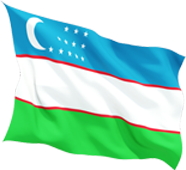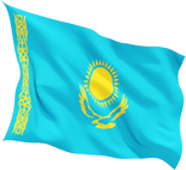Today over two-thirds of the world’s countries are participants in the UN Convention on the Elimination of All Forms of Discrimination Against Women (CEDAW) adopted in 1979. Ensuring women’s rights is one of the 17 Sustainable Development Goals, goal 5 specifically aims at “Achieving gender equality and empowering all women and girls.” The issues of ensuring women’s rights are reflected in the constitutions of almost all countries, entrenched in their legislation, and hold a significant place in national development plans and strategies.
For Uzbekistan, ensuring gender equality holds particular significance. Over the years, Uzbekistan has joined key international documents related to human rights, including the UN Convention on the Elimination of All Forms of Discrimination Against Women 1979. Gender equality is enshrined in the Constitution of the Republic of Uzbekistan. Various strategic documents, such as the Action Strategy for the five priority development areas (2017-2021), the Development Strategy of the New Uzbekistan (2022-2026), the National Human Rights Strategy, and the Gender Equality Strategy in Uzbekistan until 2030, solidify the legal foundation for human rights and contribute to establishing a corresponding systemic approach. Noteworthy is the dedicated attention to improving the status of women in the 2030 Strategy, with a focus on “enhancing the socio-political activity of women and strengthening their role in state and societal governance” as a priority task. National goals and tasks for sustainable development until 2030 align with global Sustainable Development Goals, including Goal 5: “Achieving gender equality and empowering all women and girls.”
Particularly fruitful is the collaboration with UN treaty bodies on human rights, notably with the UN Committee on the Elimination of Discrimination against Women. In 1995, Uzbekistan ratified the CEDAW, committing to periodically submit reports to the Committee on the implementation of the Convention at the national level (Article 18). These reports hold significance as they provide the state with the opportunity to critically assess the current situation, clarify its commitments, and identify areas requiring reform to ensure compliance with the Convention.
The active engagement of Uzbekistan in UN bodies and its commitment to human rights conventions reflect its dedication to international standards. The focus on CEDAW underscores Uzbekistan’s commitment to eliminating discrimination against women. This collaborative approach facilitates a mutual exchange of insights, enhances transparency, and aids in aligning national policies with global norms.
In 2022, three national reports from the Republic of Uzbekistan on the implementation of international human rights treaties were considered by UN treaty bodies. The first among them was the Sixth national report on the implementation of the UN Convention on the Elimination of All Forms of Discrimination Against Women (CEDAW) presented on February 15-16, 2022.
Of particular significance is Uzbekistan’s collaboration with the UN Commission on the Status of Women (CSW). In March 2023, the Uzbekistan delegation actively participated in the 67th session of the UN CSW in New York, showcasing a commitment to advancing gender equality on the global stage.
Uzbekistan’s cooperation with the UN Human Rights Council (HRC) and its special procedures holds paramount importance. Since 2004, Uzbekistan has been actively involved in the annual sessions of the HRC’s High-Level Segment. In 2018, a National Program of actions and events was adopted in Uzbekistan to commemorate the 70th anniversary of the Universal Declaration of Human Rights, emphasizing the document’s role in societal development. In November 2018, the inaugural session of the Asian Forum on Human Rights took place in Samarkand.
During the elections in New York on October 13, 2019, UN General Assembly delegates elected 15 new members to the Human Rights Council. Uzbekistan, for the first time in its national history, was elected to the Council for the term 2021-2023. The vote saw overwhelming support, with 169 out of 193 UN member states endorsing Uzbekistan. Since January 2022, Uzbekistan’s Permanent Representative to the UN in Geneva has been elected as the Vice-Chair of the Human Rights Council.
Uzbekistan has established constructive cooperation and regular dialogue with the United Nations Office of the High Commissioner for Human Rights (OHCHR). In June 2020, in collaboration with OHCHR, Uzbekistan adopted and consistently implements its National Human Rights Strategy. This strategy aims to implement recommendations from the UN Human Rights Council and treaty bodies. When formulating the national strategy, input was gathered not only from expert circles but also from the broader public and international organizations.
As part of the National Human Rights Strategy, specific measures have been adopted to ensure gender equality, freedom of speech and religion, and the development of civil society institutions. Alongside other legal acts, the Strategy for Achieving Gender Equality in the Republic of Uzbekistan until 2030 has been approved. This strategy defines 61 target indicators for achieving gender equality in Uzbekistan by 2030.
In recent years, the issue of gender equality in Uzbekistan has been elevated to the level of state policy. Notably, more than 40 legislative documents have been adopted to comprehensively protect the rights and interests of women. This includes the enactment of new laws such as “On Guarantees of Equal Rights and Opportunities for Women and Men”, “On the Protection of Women from Harassment and Violence”, and “On the Protection of Reproductive Health of Citizens.”
The institutional foundation for safeguarding the rights, freedoms, and lawful interests of women has been further reinforced. This includes the establishment and operationalization of the Gender Equality Commission in the Republic of Uzbekistan, a dedicated committee in the Senate of the Oliy Majlis, and the State Committee on Family and Women’s Affairs.
The legal system in Uzbekistan, regulating women’s rights, is composed of the Constitution and a series of legislative acts. Relevant provisions are embedded across all codes of the Republic of Uzbekistan.
The revised Constitution of the Republic of Uzbekistan firmly establishes the principle of equality between men and women in all spheres of public life. Article 58, recognizing gender equality, is a comprehensive reflection of the Convention on the Elimination of All Forms of Discrimination Against Women. Article 2 of the Convention obliges participating states to “incorporate the principle of the equality of men and women in their national constitutions or other appropriate legislation, if not yet done, and ensure, through law and other appropriate means, the practical realization of this principle.” The second part of this article affirms that the state ensures the equality of rights and opportunities between women and men in the management of society and the state, as well as in other spheres of public and state life. Top of FormTop of Form
In the sphere of family relations, Article 2 of the Family Code establishes the equality of women and men. The Family Code sets out the marriage contract based on the principle of the voluntary consent of the men and the women (Article 14), equality of personal and property rights of spouses (Article 19), resolution of intra-family issues through mutual agreement, prioritizing family upbringing of children, caring for their well-being and development (Article 21), and the choice of occupation, profession, and place of residence (Article 22). Additionally, the Family Code grants each person the right to enter into a marriage contract, determining the property rights and responsibilities of spouses during marriage or its dissolution.
The new constitutional revision explicitly prohibits labor discrimination against women. The Constitution states, “It is prohibited to refuse women employment, dismiss them from work, and reduce their wages on grounds related to pregnancy or the presence of a child.”
In conclusion, ensuring women’s rights is an integral part of the state’s gender policy. For the effectiveness of the state’s gender policy, it should be considered as part of the overall social policy. A well-thought-out and properly developed gender policy can contribute to addressing many social issues within society.
Mahinora Mirkhamidova,
associate professor of the department
International law and Public law disciplines
of the University of World Economy and Diplomacy












